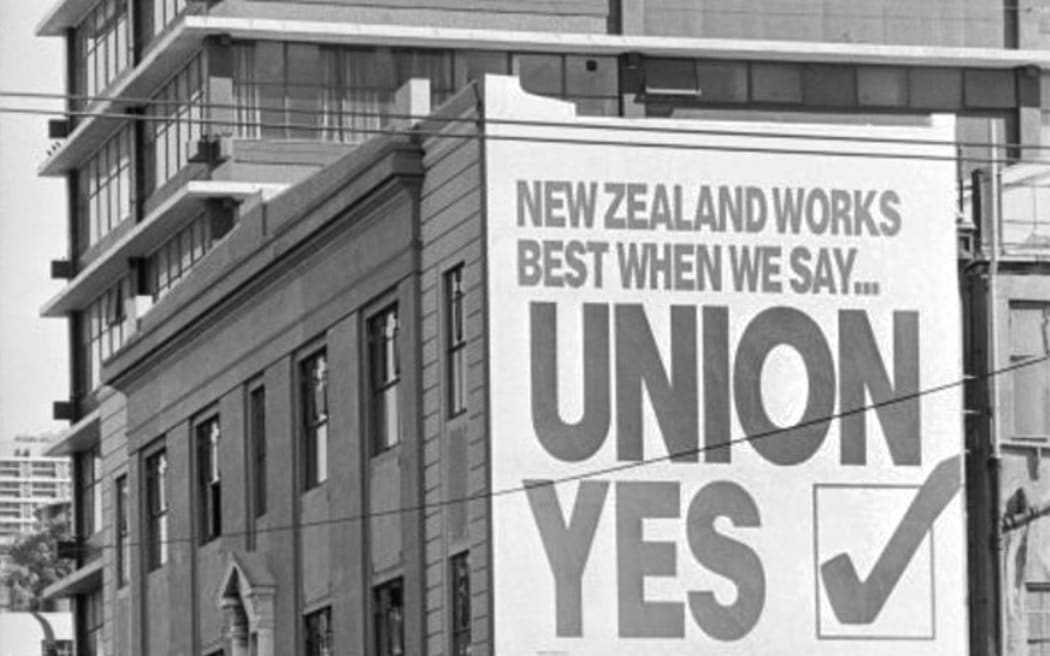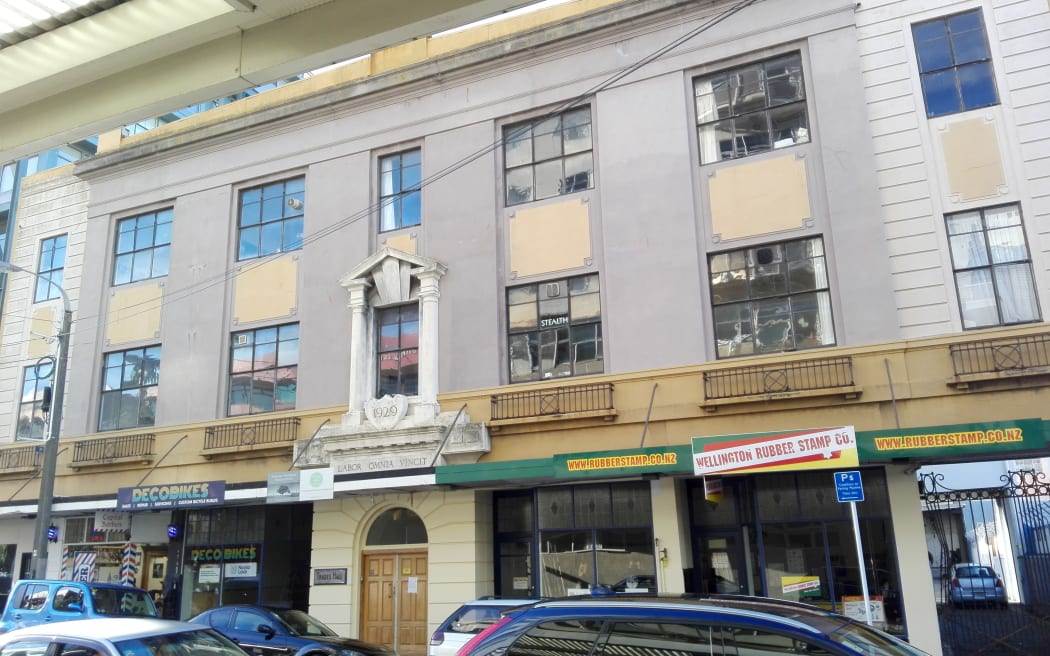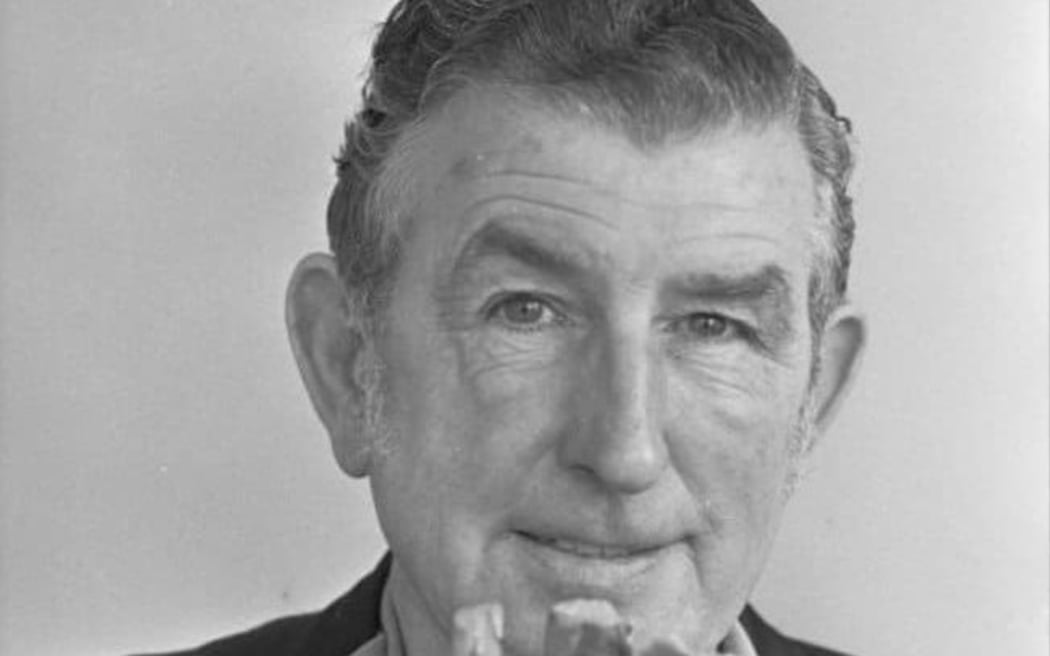
Trades Hall, with union slogan. Photo: EVENING POST
Every Thursday we speak to people who were on the scene during a big moment in New Zealand's history.
Wednesday marked the 40th anniversary of the unsolved Trades Hall Bombing in Wellington, on 27 March 1984.
One of the many who were on the scene in the immediate aftermath of the explosion was The Dominion's industrial relations reporter Tim Donoghue.
Donoghue told Nights' Emile Donovan he was at work, in the late afternoon, at the old Dominion building in central Wellington when the bombing happened.
Read more: Wellington Trades Hall bombing 40 years on: mystery still surrounds fatal explosion
"I remember it like it was yesterday. About 5:20pm, news came over the police radio that there'd been an incident at Trades Hall. All eyes in the newsroom just happened to turn upon me at that time as I was the industrial reporter, and it was a case of 'on your bike - down you go to the bomb site, son'... down to Vivian Street," he said.
"I was on the scene by about 5:45pm, and when I got there the radio and TV guys they were also starting to arrive. Police were on the scene immediately after the bombing as there was a police station directly across Vivian Street on Knigges Avenue.

Wellington Trades Hall, on Vivian Street Photo: Wikicommons
"We in the media pack we were corralled over the road ... it seemed to me that everyone on the scene was in a deep sense of shock. I was fortunate in that I knew a number of the major players who'd been in the building when the bomb went off. And my major job for the paper night was to find out if anyone had been injured or killed in the blast, and who they were."
He remembers a sense of numbness in the next hour, as he interviewed the people emerging from the building.
"Basically people, they were stunned. We were over the road ... looking at a front door which had obviously been severely damaged, and there was glass windows that had been destroyed by the bomb."
Throughout the evening it became clear that caretaker and vice president of the Wellington Caretakers and Cleaners Union Ernie Abbott had been a victim.

Ernie Abbott was killed in the incident Photo: Evening Post
Donoghue's job typically took him to Trades Hall twice in any week, where he sometimes bumped into Abbott and said hello.
"I found him to be a very affable man, and ... he was always very polite."
He describes the atmosphere the incident unfolded in as "a time when Robert Muldoon was the National Party prime minister, and those years were among the most tumultuous industrial relations years in New Zealand's history. There was a national government wage freeze on at the time and Muldoon was an advocate of voluntary unionism."
"Amidst all this I did feel a bit sorry for Ernie and his family because he was portrayed as something as a martyr for the trade union movement.
Abbott's coffin was ferried through the streets of Wellington on the day of his funeral, and Donoghue remembers a line taken from a Kipling poem, attached to chariot as: If blood be the price of your cursed wealth, Good God we have bought it fair.
"The funeral was an occasion of great sorrow for members of the Wellington trade union movement. They shared memories of when Ernie had served on the HMNZS Lachlan, a river class frigate from 1949 to 1953, this ship was a survey and Antarctic supply vessel for some years."
Donoghue said he has watched as the thin band of suspects in the bombing who remain has grown more and more narrow as decades go by.
"Ernie never got the justice he deserved, but this is no reflection on the exhaustive police investigation that Ted Lines conducted in those early days of the investigation.
"Sadly I think no amount of money is going to get whoever may have perpetrated this despicable act out of the woodwork."

